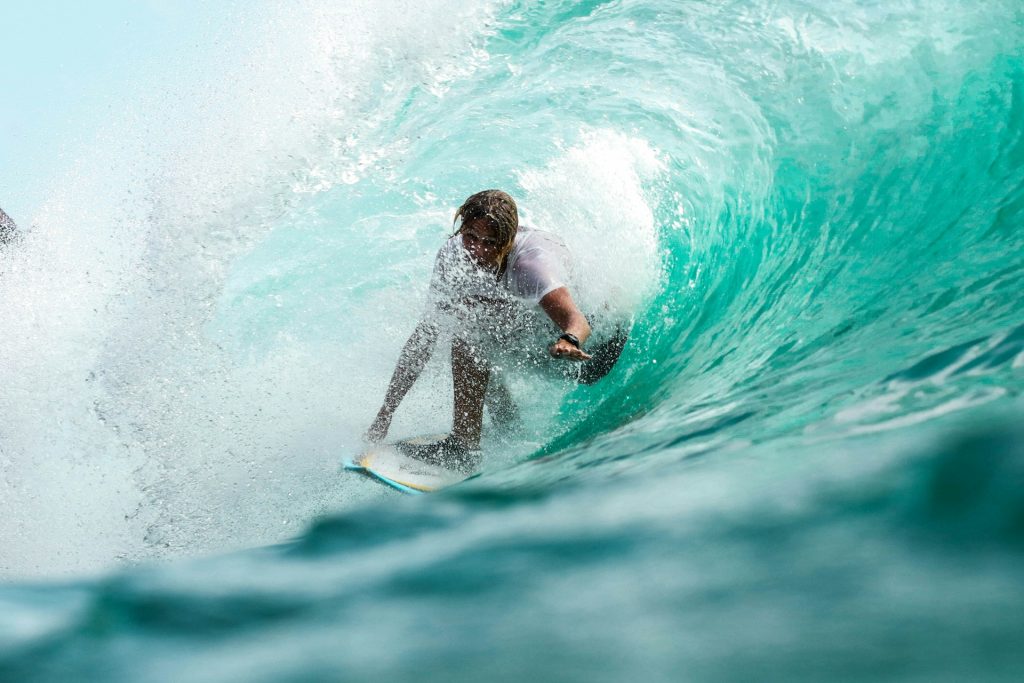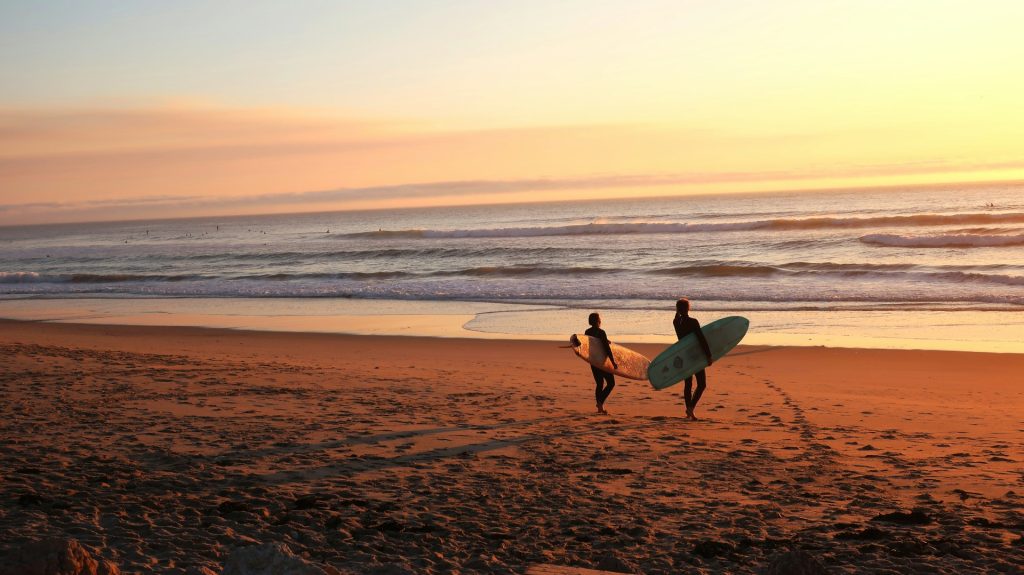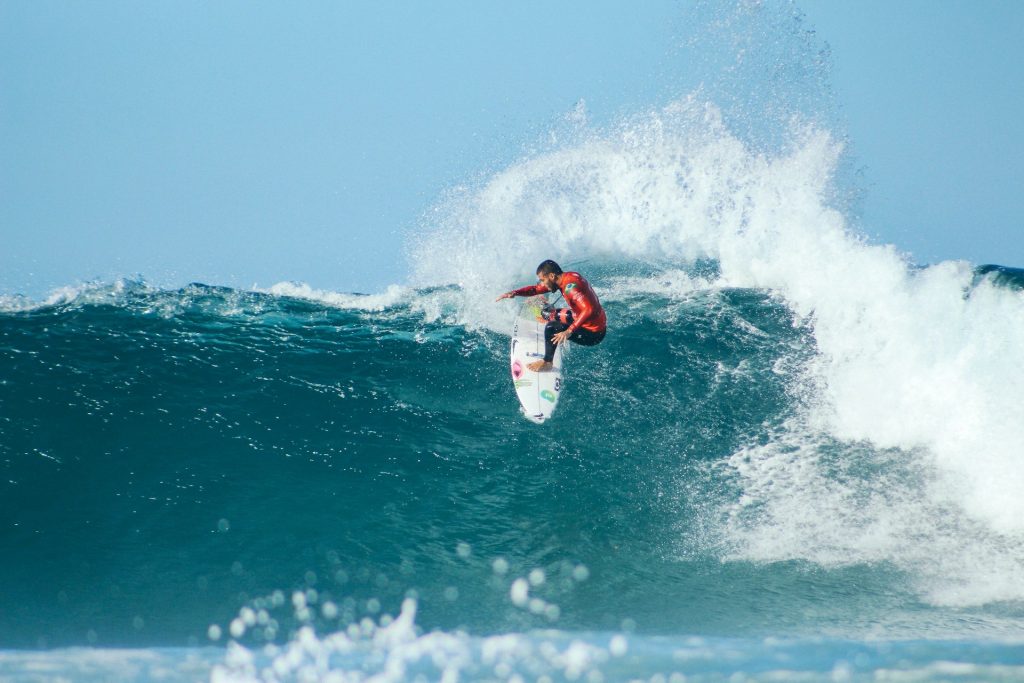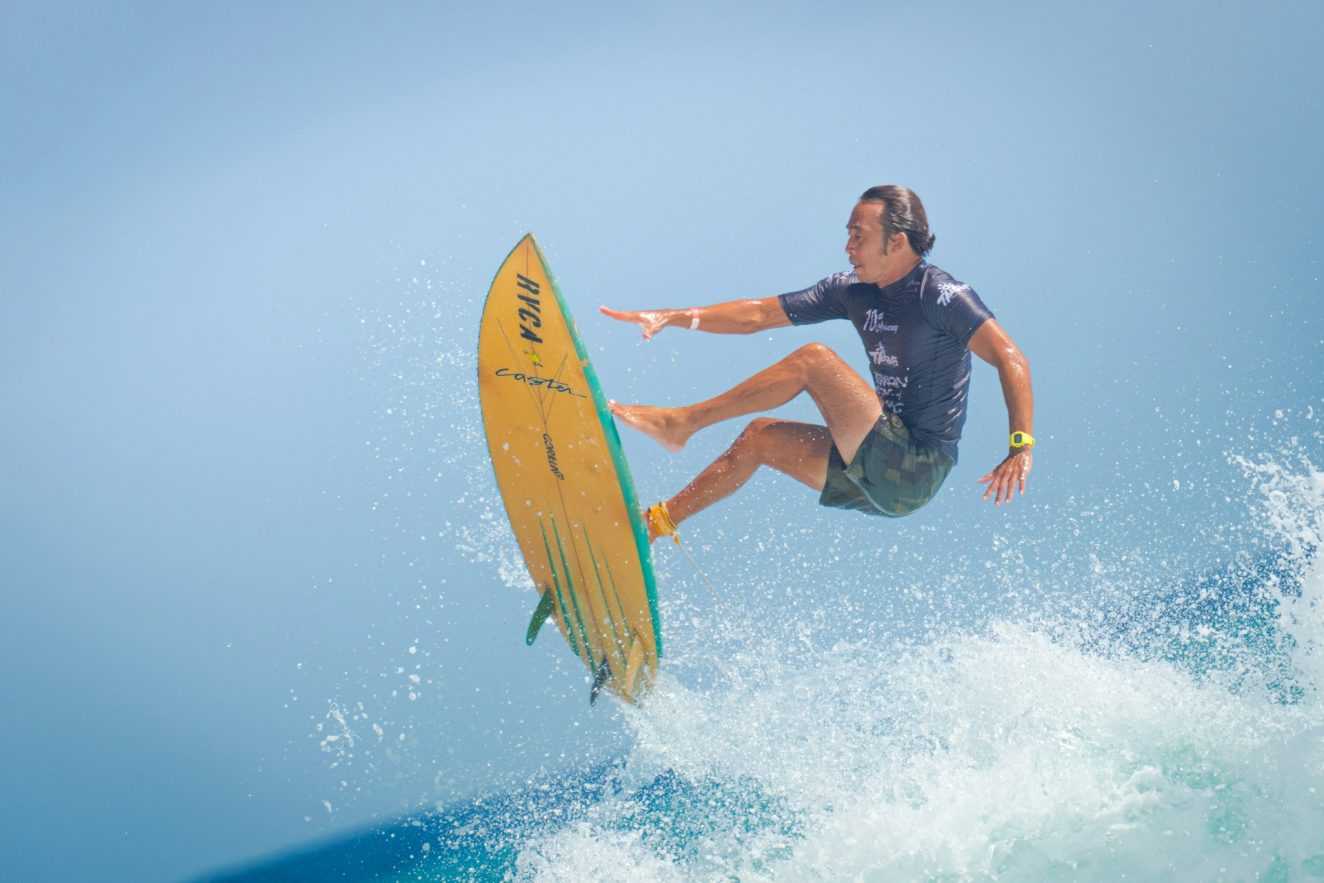Learning how to surf can be one of the most exciting and life-changing decisions you’ll ever make. However, it can also be a long, slow, and sometimes frustrating process. Not only do you have to learn to balance on a board and maneuver it, but you also need to gain ocean knowledge, develop good wave-reading skills, and master perfect timing. Plus, the ever-changing surf conditions mean you don’t have a consistent forum in which to practice from one day to the next.
Despite the challenges, surfing is an incredibly rewarding pursuit, particularly for those who put in the effort and time to develop proficiency. There’s little in life that feels better than riding down the line on a clean, green wave. The first time you do so will be an experience you always remember.
The best way to learn how to surf is to get started with some foundational basics (we highly recommend taking lessons from a skilled instructor) and then practice as much as possible. That said, there are many things that beginner surfers should know when it comes to navigating the ocean, the lineup, and respecting other surfers.
This guide will help you get familiar with the many elements of learning how to surf so that you can be the best kind of beginner surfer—one who has good surf etiquette and avoids annoying other surfers. Being knowledgeable and respectful not only helps you avoid unpleasant confrontations but also allows you to have more fun and progress faster.
Here’s the lowdown on the top things you need to know when learning how to surf!

Embrace the Kook Life
Like most pursuits, surfing is difficult to learn. At first, you need to resign yourself to being a bit of a kook. In case you don’t know, “kook” is slang for a beginner surfer. While it’s okay to be a beginner, you don’t want to be the kind of kook who gets in the way, ruins people’s waves, endangers themselves, and commits lots of faux pas—intentional or not. Follow these tips to be a good beginner surfer:
1. Choose Appropriate Waves to Learn On
Everyone wants to ride the best waves at the best spots, but as a beginner, certain lineups are simply beyond your ability level. At these spots, you’re likely to get in the way, possibly get hurt, and be less likely to catch waves and practice standing up.
Ask experienced surfers which waves are suitable for beginners and stick to those spots until you develop a solid level of proficiency. As you progress, continue choosing spots that match your skill level. You’ll find you get more waves and avoid annoying other surfers.
2. Don’t Sit in the Pack
When you first start surfing, you might be tempted to paddle out to where everyone else is sitting and waiting for waves. The problem is, you don’t yet have the skills or ocean knowledge to compete with the pack or stay out of people’s way.
Stick to the inside where you can catch whitewater waves in zones where you won’t interfere with others. As you improve, you can move out to the main lineup, but spend some time on the shoulder waiting for waves. Waves are easier to catch on the shoulder, and you’ll be less likely to get in people’s way. Just remember, don’t drop in on anyone!

3. Don’t Drop In
Dropping in on another surfer is a cardinal sin of surfing and should be avoided at all costs. Dropping in is when a surfer paddles into a wave already being ridden by someone else, ultimately ruining their wave.
In most lineups, there’s a priority system based on who has been waiting the longest or who is sitting farthest out. You’ll know whose turn it is because they’ll be the deepest and able to stand up first. Never take off in front of someone who is already riding a wave. If you see someone riding toward you, don’t go!
4. Don’t Back-Paddle
Once you have a basic level of competency and are ready to join the pack and sit deep, it’s important not to back-paddle. Back-paddling means paddling past someone to sit deeper, even if it’s not your turn.
Many surfers do this because they’re greedy and don’t respect others in the lineup, but it’s poor etiquette. On crowded days, it can be confusing, but on most days, you’ll know who has been waiting the longest. Respect their turn and don’t back-paddle.
5. Stay Out of the Way While Paddling Out
This is tricky, especially for beginners trying to surf crowded or heavy waves. The person riding the wave always has the right of way, and it’s your responsibility to get out of their way.
You can typically do this by paddling out in the channel or on the shoulder. But sometimes, you’ll find yourself in the wrong place at the wrong time. When this happens, always paddle behind the person riding the wave, even if it means getting smashed by the wave. It’s better to take a beating than to ruin someone’s wave.
Surf Etiquette
Good surf etiquette is crucial for maintaining a positive experience in the water. Here are some additional tips to keep in mind:
- Respect the Locals: If you’re surfing a new spot, be respectful of the local surfers. They know the break best and have likely been surfing there for years.
- Don’t Snake: Snaking is when you paddle around someone to take the inside position and steal their wave. This is bad form and will quickly make you unpopular.
- Help Others: If you see someone in trouble, offer help. Surfing can be dangerous, and looking out for one another is part of being in the surfing community.
Gear Up
Having the right equipment can make a big difference in your surfing experience. As a beginner, consider the following gear:
- Soft-Top Surfboard: These are more forgiving and easier to handle than fiberglass boards.
- Wetsuit: Depending on the water temperature, a wetsuit can keep you warm and comfortable.
- Leash: Always wear a leash to keep your board attached to you and prevent it from becoming a hazard to others.
Practice Makes Perfect
The best way to improve at surfing is to practice as much as possible. The more time you spend in the water, the better you’ll understand the ocean and the waves.
- Surf Regularly: Try to surf as often as you can, even if conditions aren’t perfect.
- Watch and Learn: Observe experienced surfers and learn from their techniques and behaviors.
- Stay Fit: Surfing is physically demanding, so maintaining good fitness will help you paddle stronger and surf longer.

Enjoy the Journey
Learning to surf is a journey, and it’s important to enjoy the process. Celebrate small victories, like catching your first wave or successfully standing up. Remember that every surfer, no matter how skilled, was once a beginner.
Surfing can be challenging, but it’s also incredibly rewarding. The more effort you put into learning, the more you’ll get out of it. So grab your board, hit the waves, and enjoy the ride. Happy surfing!





